Castril is located in an area of high strategic value and a key point in the natural communication routes between the Altiplano de Granada, the Alto Guadalquivir and the area of Murcia
By Nick Nutter | Updated 4 Jun 2023 | Granada | Places To Go |
Login to add to YOUR Favourites or Read Later
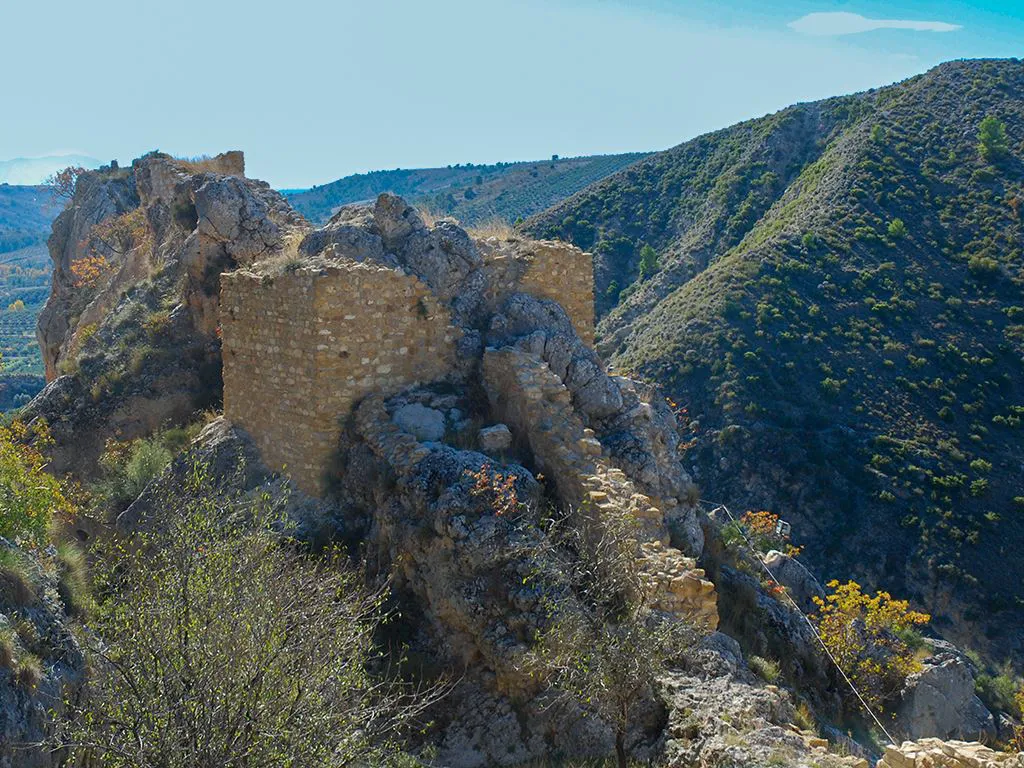
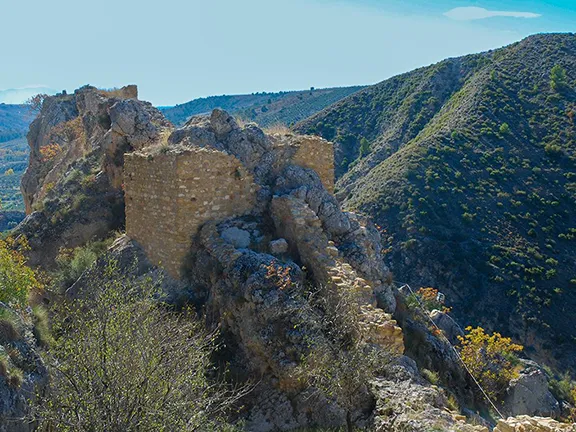
Castillo de Castril
Castril castle is an excellent example of a border castle in the Muslim period in Spain in which the topography of the place was decisive when choosing their locations. In the early part of the 13th century, the Christians, led by Ferdinand III, advanced into what is now Murcia and parts of northern Andalucia. The Muslims built castles at strategic locations to protect their territory.
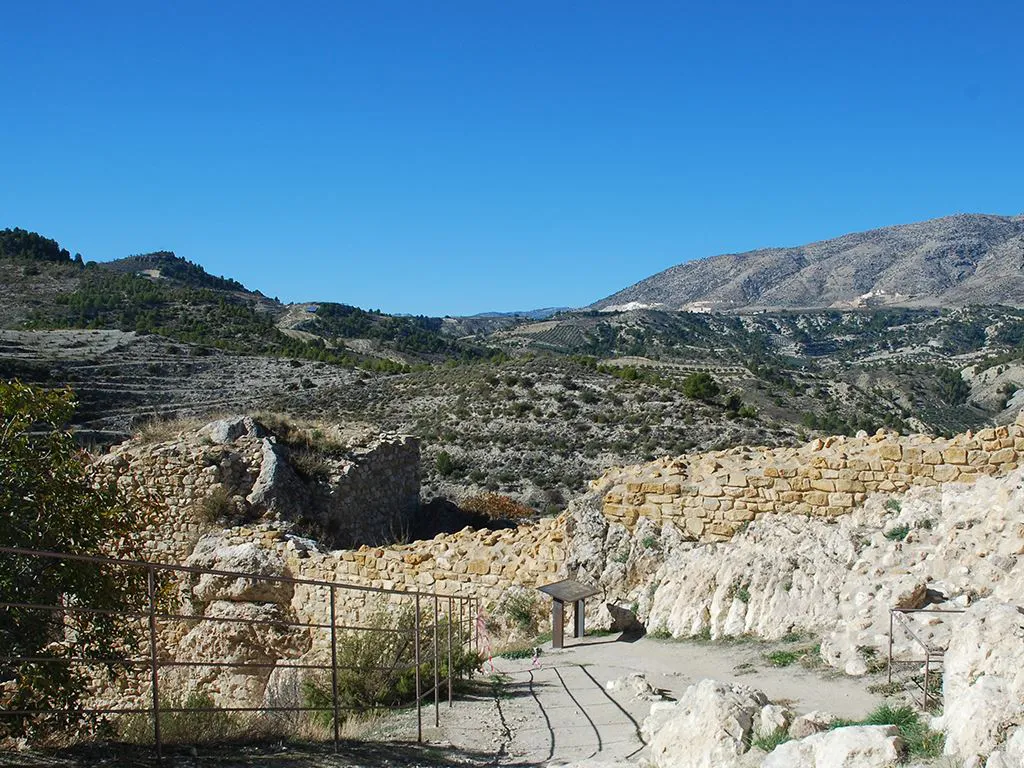
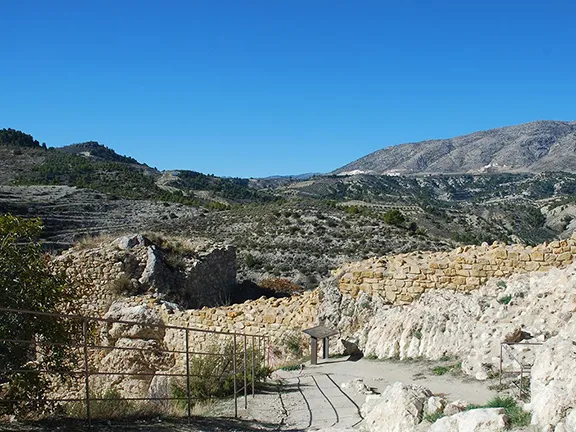
Castillo de Castril
Castril is located in an area of high strategic value and a key point in the natural communication routes between the Altiplano de Granada, the Alto Guadalquivir and the area of Murcia. During the Muslim period it controlled the Guadiana Menor corridor, the route between Baza and Guadix and the northern parts of al-Andalus. This meant that since the Neolithic it has been inhabited and coveted by successive cultures throughout history. The Romans established a ‘castro’ or camp on the Peña de Castril, chosen for its imposing presence and the almost vertical walls round practically all its perimeter and the impassable canyon of the Castril River below.
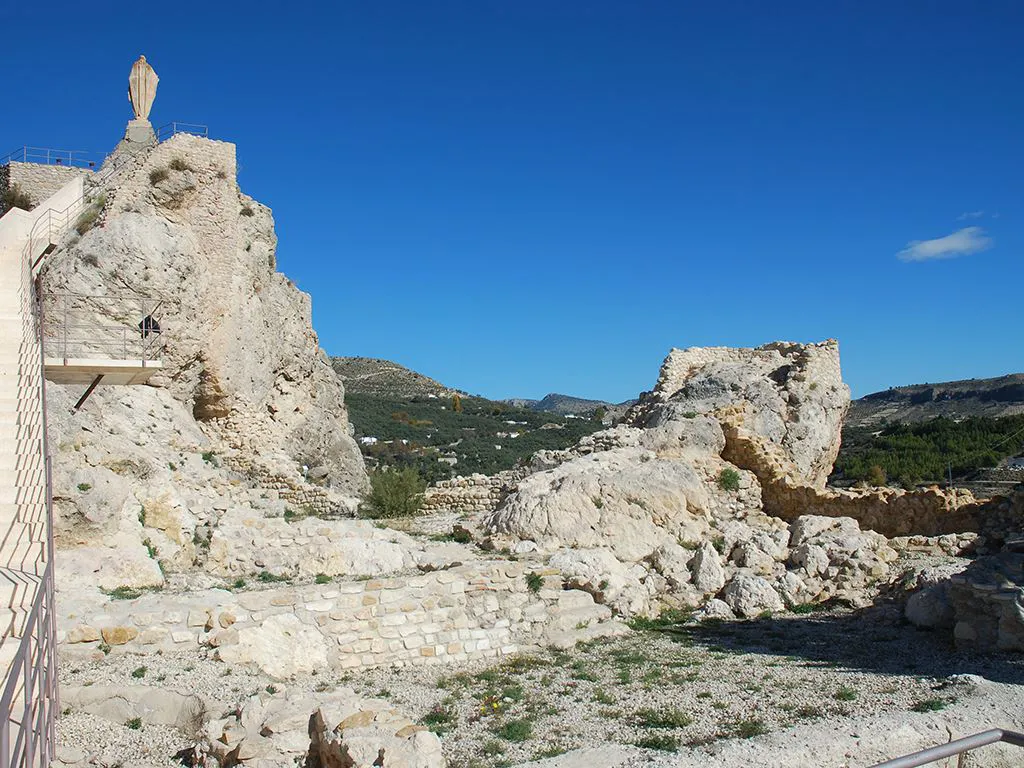
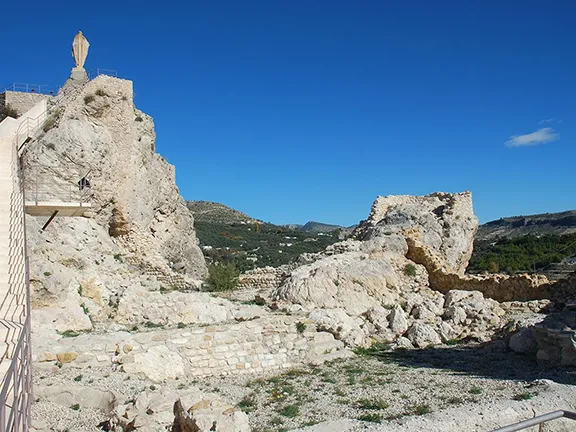
Castillo de Castril
Following the Muslim conquest, the Peña continued is use as a bastion. There may have been improvements to the fortifications during the 9th century and the construction of the castle began in the 11th century during the Almohad period. However, it was the Nazrids that built the structure you see today, in the 13th century.
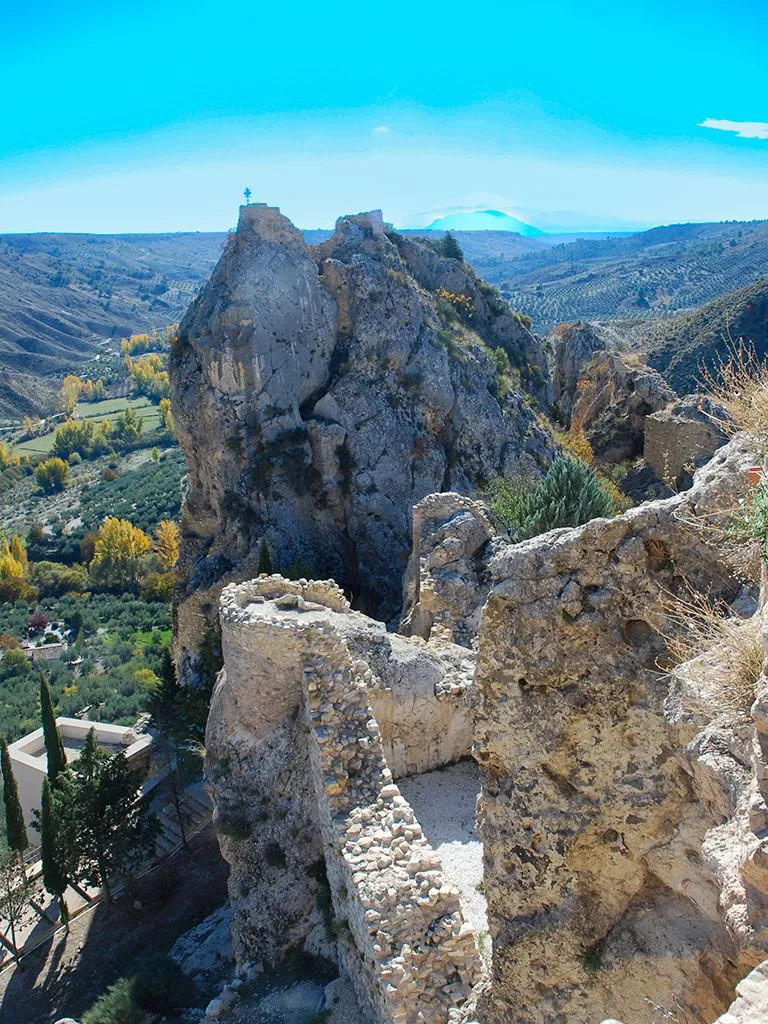
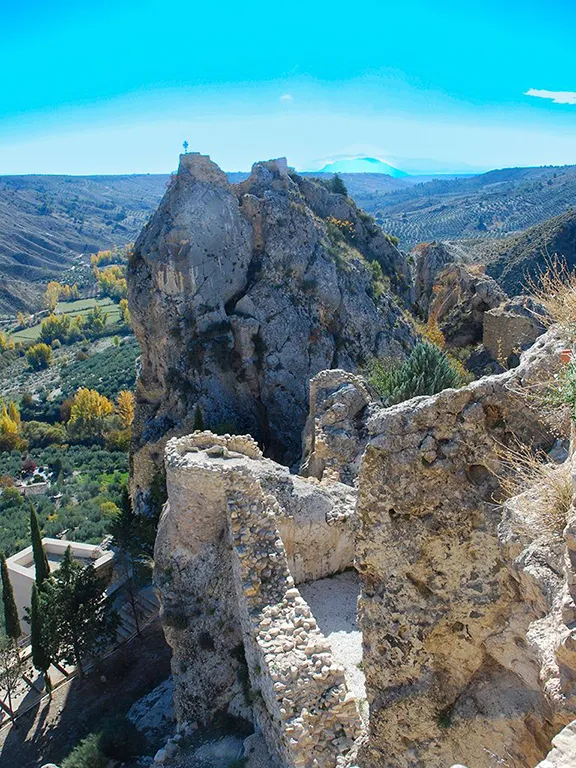
Castillo de Castril
The first mention of Castril is by the geographer, Al-Zuhri, who wrote that there is "a flat stone from which enough water flows to move eight mills." In 1165, it is cited in the chronicle of Ibn Sahib al-Salá who was writing about the advance of the Almohad army that from Granada went up via Castril to attack the city of Murcia.
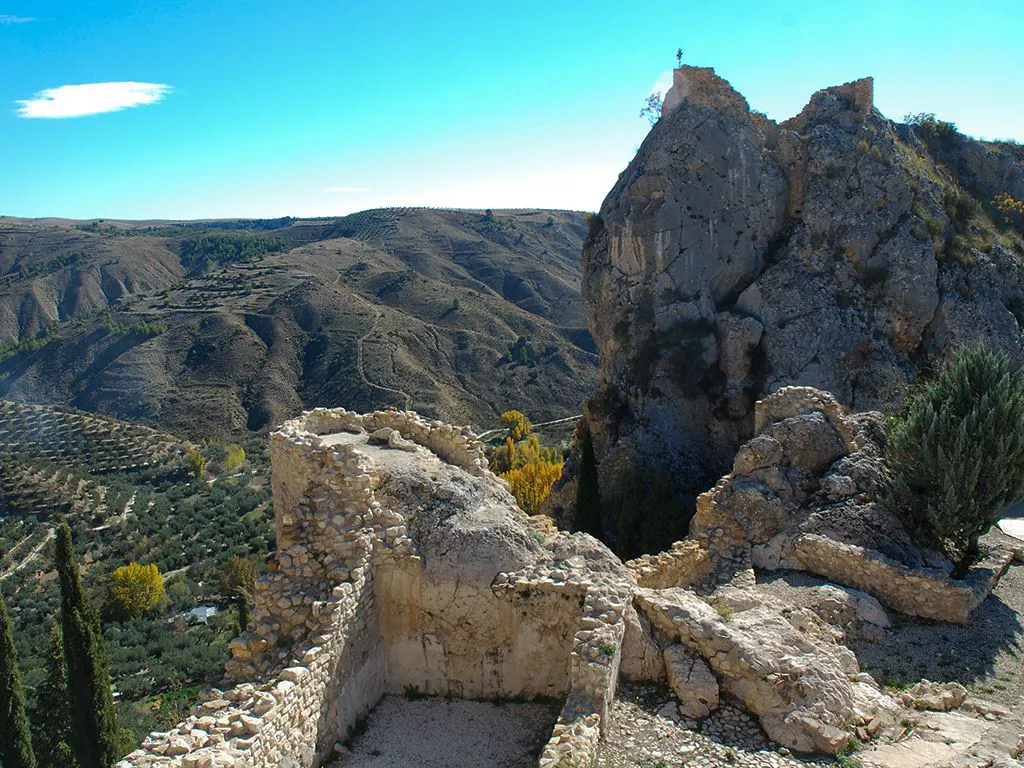
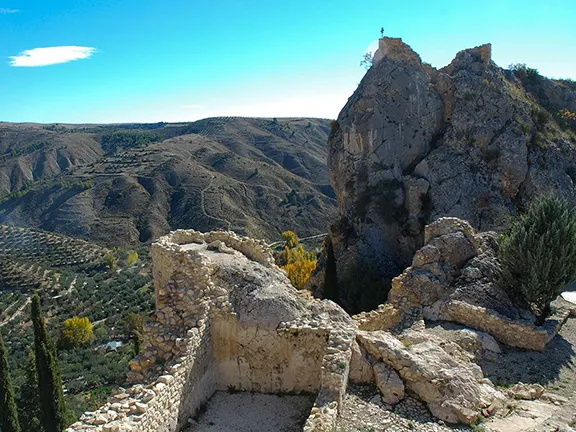
Castillo de Castril
The 13th century fortress is made up of two levels. The top level, the Homage Tower, was the last bastion against an enemy and the living quarters for the aristocracy. The lower level was housing for the defending army and civilians with a fortified wall with watchtowers. In the case of Castril, there may also have been an overflow population in the areas now called Villa Alta and Villa Baja, protected by a lesser wall. The gate through this wall was the current ‘Arco de Villa’.
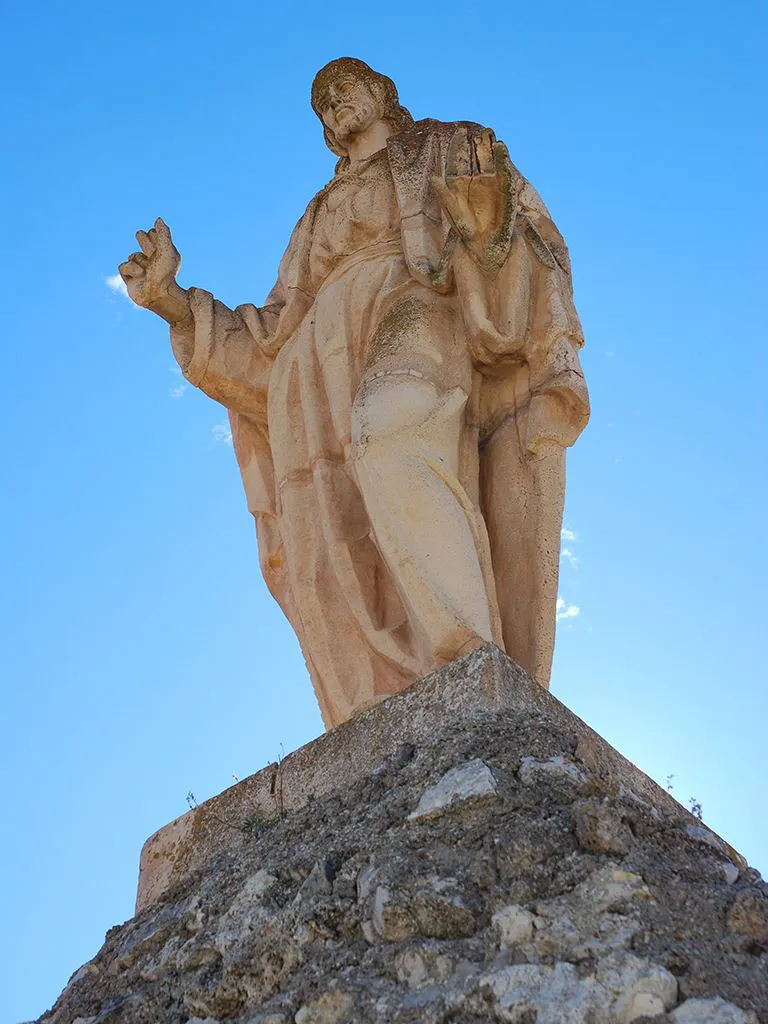
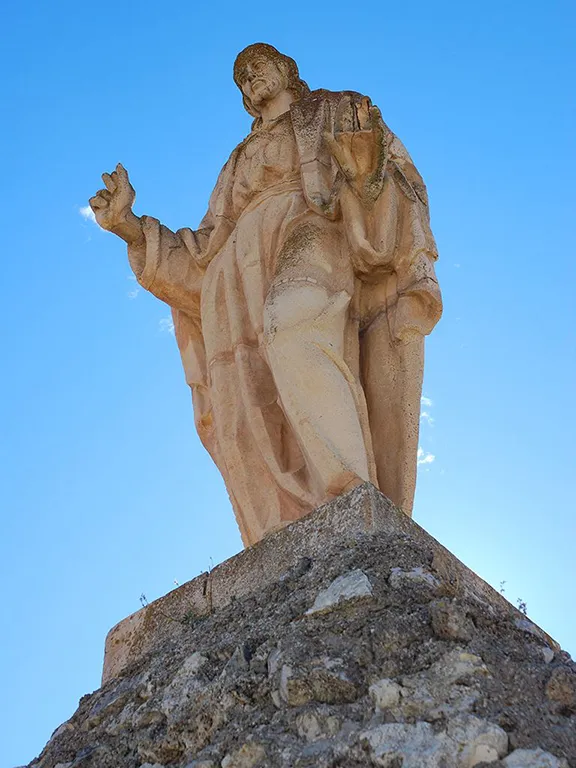
Pena de Castril
Following the final reconquest of the area by the Christians in 1489, the castle continued to be used as a military garrison until 1838, the year in which it seems that it was abandoned as the military garrison was no longer maintained. The castle was then used as a cemetery by the local population of Castril and a source of building stone.
The restoration of the castle that was completed in 2013 brought to light the different elements that made up the fortress: the cisterns, the mosque, towers, walls, pipes, paving, walkway, stairs, and the dwellings in the lower level.
Access to the Castillo de Castril is controlled by the Oficina de Tourismo situated alongside the Church of Santa Maria.
For opening times and prices of Castillo de Castril